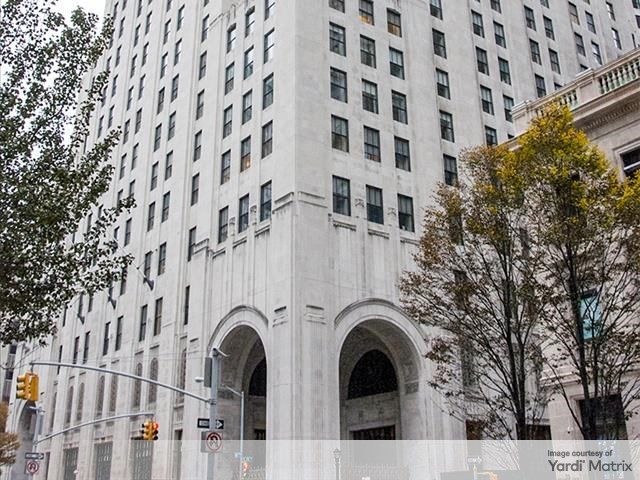Leveraging Today’s Growing Capital Sources
Despite elevated interest rates, investors have ample opportunities in the capital markets, writes JLL's Dustin Dulin.

U.S. commercial real estate markets are ripe with opportunities for private investors to buy assets at discounted prices and capitalize on long-term projected growth.
In the face of elevated interest rates, heightened costs for undercapitalized owners, and other challenges, opportunities to buy undervalued properties have increased over the past two years. While there is little sign of systemic distress in commercial real estate, loan defaults have increased since the Federal Reserve began raising rates in mid-2022. In the office market, especially, many properties due for refinancing are generating lower proceeds than when their outstanding debt originated.
Investors, however, must be ready to move forward before the all-clear signal. There is a growing consensus that while market conditions are still evolving, the market is strong enough for investors to take some chips off the table. While there’s still uncertainty around the Fed’s next move on rates, the U.S. market stands to benefit from the deep amount of investor capital that will soon come off the sidelines.
Private investors are seeing some of the best pricing from debt fund lenders in 18-plus months, for example, with spreads coming in significantly. And while overall bank lending was down in 2023, several local and regional banks have reentered the market and are becoming increasingly active.
Most market fundamentals remain strong
Market fundamentals for the multi-housing and industrial sectors, in particular, remain strong given the central role the sectors play in the economy. Despite sustained volatility, the U.S. economy continues to expand at a measured pace. The economy added 303,000 jobs in March and 175,000 jobs in April, according to the Bureau of Labor Statistics, keeping the unemployment rate below 4 percent.
At the same time, the Consumer Price Index has shown higher-than-expected inflation in recent months. Federal Reserve Chair Jerome Powell noted in mid-April that this presents new uncertainties over whether the Fed will be able to move the needle on interest rates this year.
But as investors recalibrate to the new norm of elevated rates and adjusted asset prices, the wall of maturing debt will catalyze investment sales and capital markets activity regardless of when the first rate cut occurs. About $930 billion in CRE loans are coming due this year, up nearly 30 percent year over year.
The start of 2024 has brought numerous indicators of positive momentum. The number of sales mandates in the market is up year over year as more owners are willing to sell at current values. Furthermore, bidding on investment sales transactions has increased significantly since the end of last year. Pricing on these deals has become more realistic as a growing number of investors will need to inevitably transact, which means negotiations that carried over from last year are more likely to cross the finish line.
Debt is still available across all lender types. Financing for established borrowers—including commercial mortgage-backed securities, agency debt, life insurance loans, and bank and nonbank capital—is becoming increasingly attainable.
Here is a more nuanced look at the growing number of options in today’s capital markets and the upsides for private investors.
CMBS resurgence
The CMBS market is resurging, creating more liquidity for larger transactions. CMBS issuance—including single-asset, single-borrower loans—is up substantially in 2024, fueled by a handful of large conduit deals backed by assets across property types.
Bond investors have bought nearly $28 billion of newly issued CMBS debt in the first five months of 2024, up 180% year over year. The CMBS market is expected to see a growing number of new borrowers as deal activity picks up further in the second half of the year.
While investors contend with continued volatility in the 10-year Treasury, the most successful are capitalizing on favorable buying opportunities. Private investors are taking advantage of the liquidity in the CMBS market to get full-term interest-only payments on 5-year loans, often with higher amounts of proceeds.
Agency accountability
In the multifamily sector, Fannie Mae and Freddie Mac have stayed committed to offering insured permanent loans backed by the Federal Housing Finance Agency. Fannie and Freddie provided more than $100 billion in mortgages to multifamily owners and buyers in 2023.
In addition to certainty of execution, agency debt products can offer favorable terms, competitive rates, and flexible prepayment options.
More than $257 billion in multifamily debt is set to mature this year, followed by another $213 billion in 2025, according to the Mortgage Bankers Association. This means the agencies will continue to play a significant role in the capital markets going forward.
Pricing with the agencies remains strong as some spreads are now in the low 100s with
buydown structures.
Life and liberty
For high-net-worth individuals and other investors, life insurance firms remain a key source of funding in 2024. Life companies will see about $60 billion in outstanding debt mature this year, freeing up liquidity for new transactions going forward.
Life companies, known for their deep borrower relationships, are often a preferred option for those who plan to hold an asset long-term. Life companies are also generally more active with their loan originations in the first three quarters of the year due to fresh capital allocations—a potential boon to private investors who plan to strike while large institutions still are less active.
In a rapidly evolving debt market, having a trusted debt and structured finance specialist by your side is invaluable. They offer more than just numbers; they provide guidance, expertise and access to a network of professionals who can support and enhance your path to a successful debt financing. Don’t miss out on the advantages they bring to the table.
Dustin Dulin is senior managing director, JLL Capital Markets.







You must be logged in to post a comment.